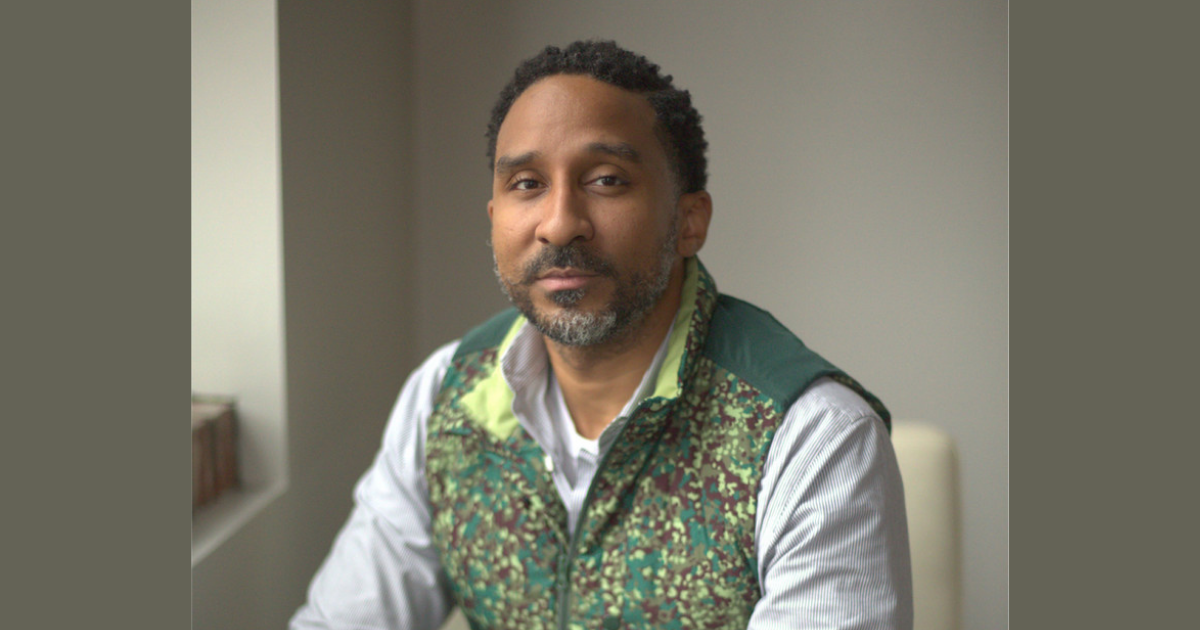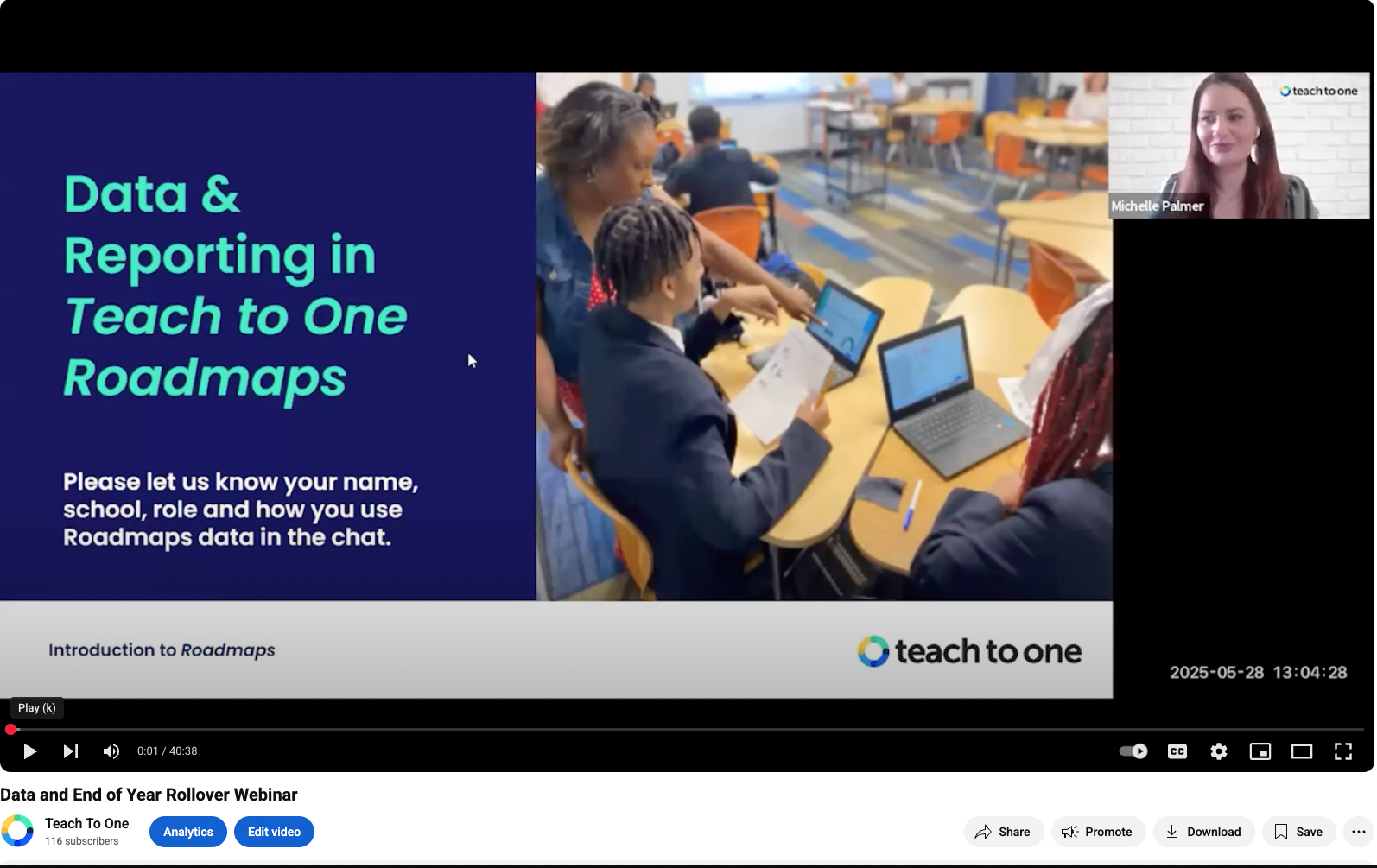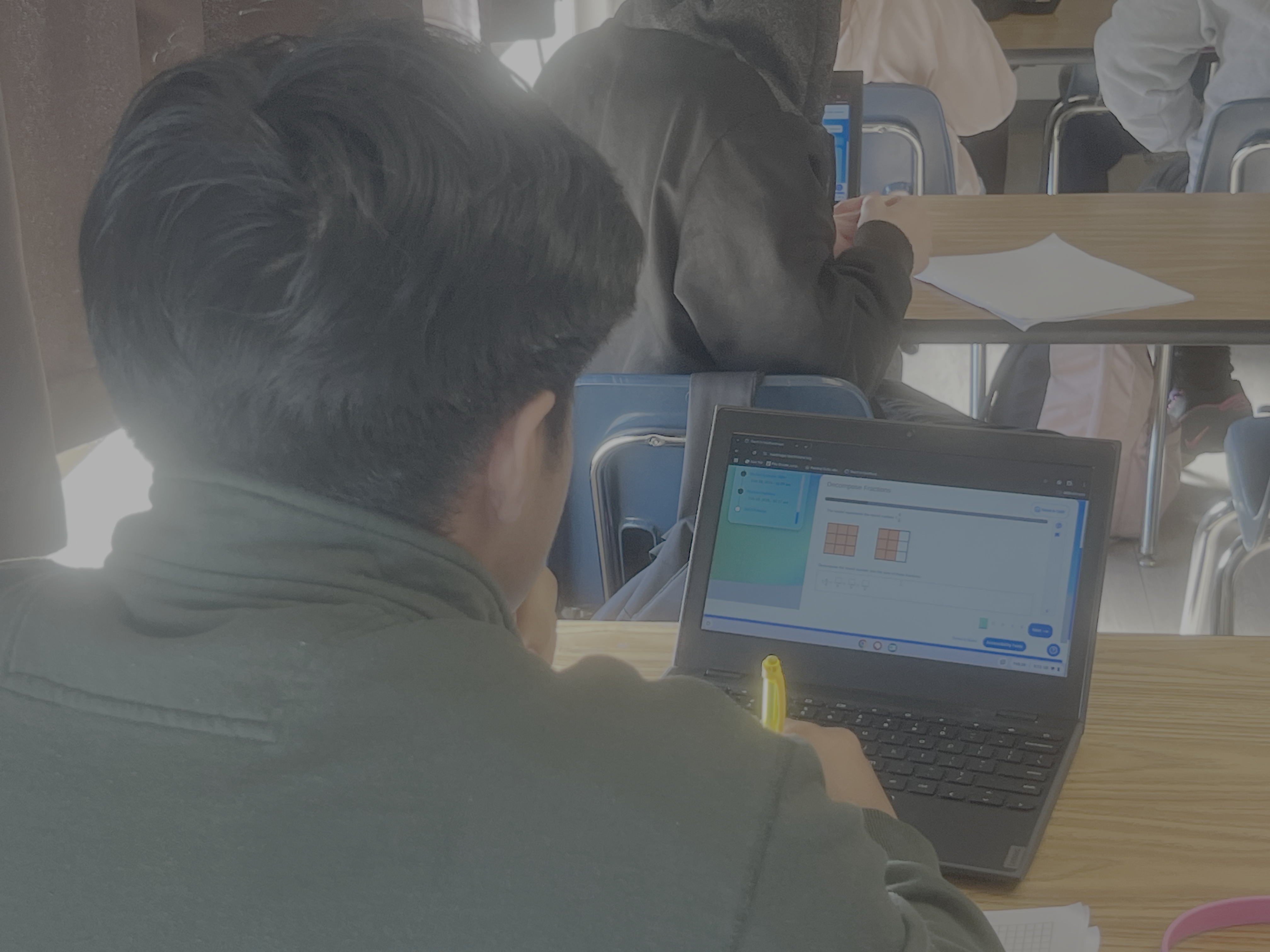Blacks in STEM Interview Series: Mikeal Vaughn
February 04, 2021
By Teach to One

In honor of Black History Month, our Diversity, Equity, and Inclusion (DEI) Circle was excited to cover the contributions of African Americans in STEM, especially since that connects to our work at New Classrooms.
Our first interviewee in this series is Mikeal Vaughn, the Founder and Executive Director of Urban Coders Guild, a non-profit headquartered in Tulsa, OK that provides STEM (Science, Technology, Engineering, and Math) education opportunities to underrepresented and underserved communities.
NC: Thanks so much for agreeing to do this interview on the first day of Black History Month! So, tell me more about what you do at Urban Coders Guild.
MV: I wear many hats at Urban Coders Guild: Founder, Executive Director, Teacher, Motivator, Mentor, and Dreamer.
NC: That’s awesome! You mentioned the words mentor and motivator in regards to your work with students. This makes me ask, “What people or organizations inspired and influenced your journey into STEM?”
MV: I am fortunate enough to be from Tulsa, OK, which is home to The Greenwood District, also known as The Black Wall Street. Because of this, there were so many Black teachers, community leaders, and business professionals that poured into my life—people who saw my creativity and thought it could be channeled by working in STEM. Also, my mother was a huge personal influence in my life, as she was instrumental in nurturing my curiosity and creativity. Because of this, I want to also give back to my community by providing a creative outlet for students from underrepresented communities, which typically equates to Black and Brown students. I spent 10 years living in Japan, and I had an incredible life. But it was there that I had what I call my burning bush moment, where I realized that I needed to help the students back in my home community to be able to have the opportunities that were afforded to me.
NC: As an African American within a STEM field, do you think representation matters within this industry? Why or why not?
MV: Yes, it most definitely matters and mostly on two fronts. First, it matters because when you have a larger diverse audience: younger and older, cis and trans, LGBTQIA+ and het, and a variety of races in the room, then you get better and more creative solutions to solve problems. Secondly, it’s a matter of justice. People from underrepresented communities should be allowed opportunities to go into these fields and make more money to be able to transform their communities. Ultimately that’s what this is about–the power to transform communities.
NC: What message do you have for students or family of students who may be interested in STEM?
MV: I would say that students should always be curious and always ask why and how. At all times, lean into that creativity and curiosity. I also think that parents play an important role in helping to foster and nurture that curiosity and creativity. As parents, you don’t have to have a background in STEM to ask your children why they think something works that particular way or to ask them to try to figure out how something works or even to fix something that is broken. So many children are naturally curious, and parents have the best environment to nurture that. This little push can give students the building blocks they need to become successful STEM professionals.
NC: That’s great advice for parents, especially those who don’t have a STEM background and might feel somewhat intimidated by the content. In terms of your work with the students, what upcoming projects does Urban Coders Guild have in its pipeline?
MV: We are in the process of creating an, “A Day in the Life” video series featuring various STEM roles to help expose students who ordinarily wouldn’t have access to those roles so that they’ll understand the many different opportunities available within STEM. It’s not just coding. There are UI/UX designers, software developers, security analysts, project managers, and so much more.
We are also in the process of changing all of our curriculum to Spanish so that our Latinx community students will be able to complete projects in their first language. Additionally, we are working on a project in remembrance of those businesses that were destroyed during the 1921 Tulsa Race Massacre. In honor of its centennial memorial, we have students creating websites and apps for the businesses lost within the Tulsa Race Massacre. So students are working on the code and the copy for these businesses or, rather, what those businesses would be today had they survived. As a Tulsa native, I am really excited about this project.
NC: This sounds awesome. Thanks so much Mikeal for this interview. It has been great learning more about Urban Coders Guild. I hope to hear more in the future.
MV: Thank you!
Interviewing entrepreneurs is always interesting because it provides a window into how these creative individuals solve problems. For Mikeal, a lack of representation and opportunities for African Americans in STEM fueled his passion to create the Urban Coders Guild. For more information about the Urban Coders Guild, as well as how to get involved and to support, please see their website here.
Latest Posts

Recording: Data and End of Year Rollover Webinar
In this 45-minute webinar recording, Michelle Palmer, Senior Director of Customer Success, and Liat Greenspan, Associate Director of Program Success, explain how to assign a skill or pathway, use the Teacher Dashboard to identify struggling students, leverage the Reports Hub for weekly planning, and monitor growth and engagement on the Progress Page.

Getting Students Engaged in Math at Valley Charter
Students arrive at their assigned seats equipped with laptops and individualized Teach to One Roadmaps packets, which include a work time poster, a note-taking sheet, and graph paper.

Webinar Recording: Unlocking Algebra
On Tuesday, May 13, TNTP and New Classrooms released the report: Unlocking Algebra – What the Data Tells Us About Helping Students Catch Up. On the same day Adam Meier, Partner, Research Center of Excellence, TNTP, and Joel Rose, Co-founder and Chief Executive Officer, New Classrooms, presented the findings, recorded in the webinar below. Looking […]